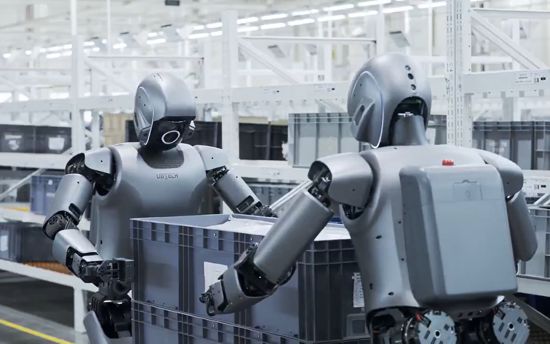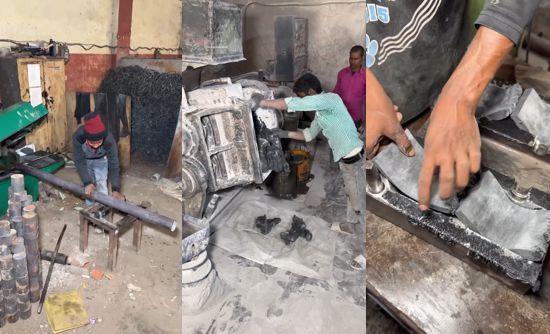Porn Discounts Sex Games Porn Games Juegos XXX Hentai Games PornStar Games 3D Porn Tantaly Sex Doll Cupsland Sextoy
Live Sex Free Live Sex Free Sex Games Páginas Porno Rose Toy Celebrity Fappening Celebrity Sex Videos TikTok Porn Best OnlyFans
Live Sex Free Live Sex Free Sex Games Páginas Porno Rose Toy Celebrity Fappening Celebrity Sex Videos TikTok Porn Best OnlyFans
Published on 2015/11/12
FUCK THE MOST BEAUTIFUL VAGINA IN THE WORLD

A sex toy manufacturer has been searching on the Internet the most beautiful vagina in the world, in order to scan it in 3D and replicate it so they could sell it.
They made a contest with a $5,000 prize for the winner and $2,500 and $1,250 for second and third, apart from a trip to Los Angeles so they could scan their vaginas and start selling the copies.
These were the chosen girls...
WINNER

2nd

3rd

Here you can see all the participants in the contest:
# vaginacontest.com/leaderboard
If you wanna buy a pussy masturbator, you should know we have a lot on our sexshop.Check it out!!
THE WORLD'S FIRST FACTORY WHERE ALL WORKERS ARE HUMANOID ROBOTS
If the factories of the future are fully automated, like Zeekr’s in China, where humanoid robots do all the work, a big question arises: how will private companies make money if people aren’t working, don’t have incomes, and therefore can’t buy what those factories produce? Right now, the system works because workers earn a salary and spend it, but if robots take over everything, that cycle breaks.
The most talked-about solution is universal basic income, a kind of state-funded allowance so people can live without working. But here comes another paradox: if you get paid just for existing, what incentive is there to strive for more? Some might work to earn extra and improve their lifestyle, but those who rely solely on basic income will become the new poor. They won’t lack the essentials, but they won’t be able to aspire to anything more either. It would be like a modern-day rationing system—you can survive with the basics, but not really live well.
And here’s the key point: in any society, there will always be an elite. If factory owners lose control of the money because no one can afford to buy their products, the state will take over, deciding who gets what and under what conditions. Those who manage this system will become the new gods of Olympus, controlling everything while the rest simply depend on them. Whether it’s through big corporations or an all-powerful state, there will always be a few who hold the reins while the rest rely on whatever they decide.
So, who should govern us—the private sector or the state?
Neither one in absolute terms. If the private sector holds all the power, the relentless pursuit of profit could turn people into mere cogs in a machine designed to enrich the few. But trusting the state blindly isn’t the answer either, because history has shown that when bureaucrats and politicians take full control, things often slide into communist models that fail, suffocating individual freedom and crushing innovation.
The only viable path is balance. The private sector must continue driving progress, technology, and advancements in healthcare, education, and science—thanks to competition and financial incentives. But the state, as the voice of the people, must ensure that progress doesn’t come at the cost of our freedom or dignity. A system where innovation moves forward, but with enough oversight to prevent anyone from becoming a slave to it.

# Watch video
ExtraBall
Smells like petunias with a hint of jasmine.
Full video
She is actress Lena Paul— click here to watch more of her scenes.
ExtraBall2
(Clicking on these links daily you support ALRNCN's work. They're collaborators or sponsors and, by visiting their sites, they like us even more)











FINAL DESTINATION: BLOODLINES
Death won’t rest until the job is done.
The latest chapter in New Line Cinema’s blood-soaked franchise takes audiences back to where Death’s twisted sense of justice began—Final Destination: Bloodlines.
Haunted by a violent recurring nightmare, college student Stefanie heads back home to find the one person who might be able to break the cycle and save her family from the chilling fate that’s inevitably coming for them all.

# Watch video
ExtraBall
Today’s slo-mo moment.
ExtraBall2
(Clicking on these links daily you support ALRNCN's work. They're collaborators or sponsors and, by visiting their sites, they like us even more)

























RECOMMENDED SITES
 Add your site
Add your site
- mybigtitsbabes
- Entensity
- celeb-stalker.com
- Babes & Bitches
- BoobieBlog
- Candid Teens
- drunkenstepfather
- Erotic Beauties
- Kanoni Net
 Add your site
Add your sitePorn Discount
💩 CrazyShit
🤪 eFukt
NudeChatGirls
👉🍑 Top XXX Pictures
Bingo Porno
Best Porn Blog Sites
Sex Games
Real Amateur Porn
MrPornGeek
CamBB.xxx
ChatSex.xxx
Comepollas
PornScn Free Porno
AI Girlfriend App

















THE FUTURE OF ROBOTS AND THE EMPLOYMENT DILEMMA
It’s becoming increasingly clear that androids will soon be part of our daily lives, taking on household chores, grocery shopping, and even jobs in factories, logistics, and construction. Automation is advancing with the goal of reducing costs and increasing profits, but this raises a major issue: if robots take over our jobs, where will we get the money to live? If too many people are unemployed, who will buy the products these companies produce?
There are two possible scenarios. One is the creation of a new economic model, where automation forces the implementation of a universal basic income to ensure financial stability for those who can no longer find traditional jobs. This way, consumer spending remains active, and the economy avoids collapse.
The other scenario is a transformation of the job market. Just like the Industrial Revolution eliminated some jobs but created many others, automation could generate new professions we can’t yet imagine. Humans might shift towards creative fields, tech-driven roles, or industries where empathy and human interaction remain irreplaceable.
What’s clear is that if we want a future where robots make life easier without triggering social collapse, we must rethink the economic model. Technology is progressing, but without a strategy for adaptation, the risk of a consumption crisis is real.

# Watch videos
ExtraBall
The slow-motion moment of the day.
ExtraBall2
(Clicking on these links daily you support ALRNCN's work. They're collaborators or sponsors and, by visiting their sites, they like us even more)











HEROES WITHOUT CAPES
Not everyone reacts the same way to danger. Some freeze, others think about their own safety before taking action. But there are those who, without a second thought, throw themselves into danger when someone else is at risk.
The storm had turned the road into a raging river, and a car with a family inside was trapped in the current. The water was rising fast, the pressure against the vehicle increasing, and time was running out.
That’s when he sprang into action—without a thought for his own safety. He could have been swept away, he could have gotten trapped, but none of that crossed his mind. Only the children and their mother mattered. Just seconds after getting the entire family to safety, the car was swallowed by the current and dragged away.

# Watch video
ExtraBall
Britney is still going all out on her IG.
ExtraBall2
(Clicking on these links daily you support ALRNCN's work. They're collaborators or sponsors and, by visiting their sites, they like us even more)












Contact
You can tell us whatever you want via email: [email protected]
If you prefer, you can use this contact form:
If you prefer, you can use this contact form:






HOW THEY'RE MADE
You see them every day, silently waiting for you to choose. You approach them, size them up, take a deep breath, and pick the ones that motivate you the most—and from that moment, there’s no turning back. They’re part of your daily routine, helping you grow stronger and push your limits. But behind these workout companions you grip so firmly lies a story you've never imagined. Have you ever wondered how they're made, or how they come into existence?

# Watch Videos
ExtraBall by david
Today's slow-motion special.
ExtraBall2
(Clicking on these links daily you support ALRNCN's work. They're collaborators or sponsors and, by visiting their sites, they like us even more)











MOTORPORN VOL69
This girl tries to imitate the sound of a sports car revving. And she nails it—not with precision, but with attitude. There’s something about the way she does it, that mix of sexy and innocent, that feels like a car engine purring just before it gets serious. Like those seconds right before the climax, when everything’s shaking but hasn’t exploded yet.
The roar of a V8 isn’t that far from the moan of a woman enjoying herself. That deep, growling, savage sound—or that gentle idle whispering in your ear: "Get ready for what’s coming."
Machines that stir things up. Women that raise your pulse. And sounds that turn you on without laying a finger on you.

# Watch videos
ExtraBall by david
Today’s slow motion moment.
ExtraBall2
(Clicking on these links daily you support ALRNCN's work. They're collaborators or sponsors and, by visiting their sites, they like us even more)






























